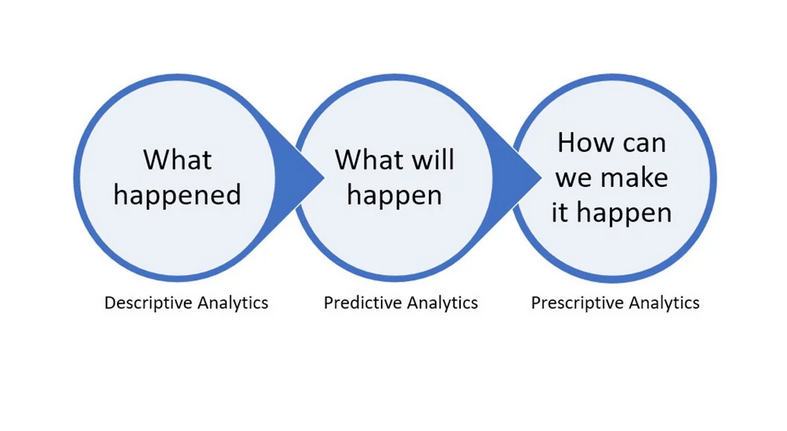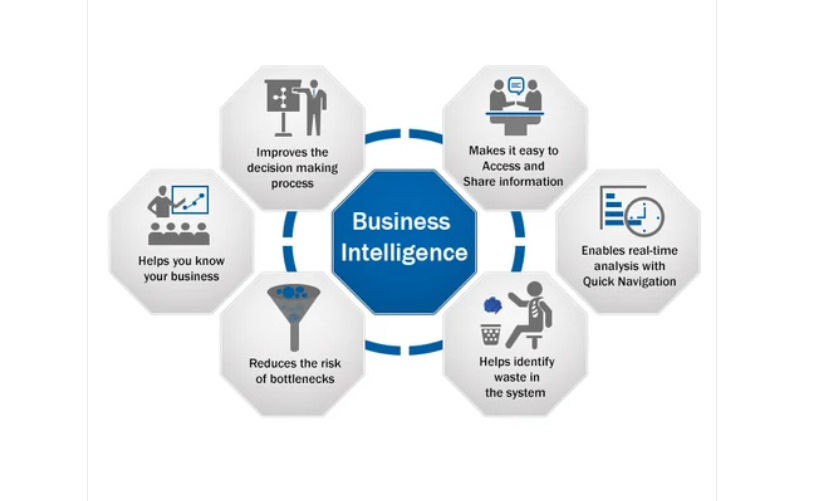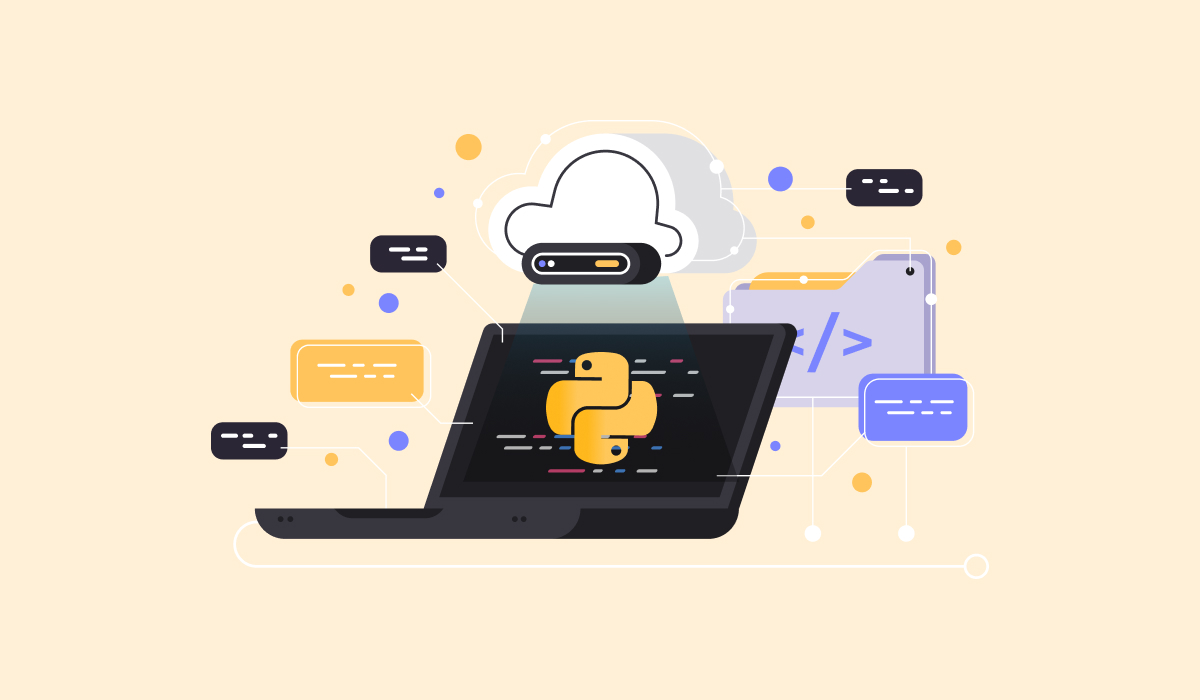If you’re a business owner, then you know that data plays an essential role in your success. You need to be able to track your progress and make changes accordingly. This is where business intelligence comes in. BI allows you to collect, analyze, and report on data in order to make better decisions for your company.
There have been some major changes in the business intelligence landscape in the past five years. With new technologies and platforms emerging, businesses can gain insights into their data in ways that were not possible before.
Be it IT companies, the healthcare industry, or the retail industry; BI is being used everywhere to leverage maximum benefits. And in the next few years, it will attain new heights. As per a recent stats, the BI market is estimated to grow by $41 billion at a CAGR of 12% in 2026.
Read on to know what the future of business intelligence holds and what you can expect out of it in 2022.
Self-service BI
Self-service BI is becoming more and more popular as businesses seek to empower their employees with the data they need to make the right decisions.
By providing employees with the ability to analyze data on their own, companies can save time and money while also increasing decision-making accuracy.
Although businesses need to strike a balance between self-service policies and those that require employees to work closely with data analysts, the benefits of self-service BI tools — such as automation, faster access to information, and improved ease of use — can help drive performance.
-
Data Cognition
Business intelligence is growing more important as data grows. And as data sets continue to grow, cognitive engines promise a way of managing them without losing sight of what’s essential.
These powerful tools leverage machine learning and artificial intelligence, which can identify patterns in your company’s information.
They’re designed to help manage the deluge of data, and their popularity is only going up as big-data projects continue growing at an astounding rate.
With a compression rate that is five times faster than before, these cognition engines can store huge amounts of data in models with significantly less space.
Thus, the future of business intelligence seems to be brighter where companies can better analyze their data.
Also Read: Top 7 Business Intelligence Consulting Companies (Updated List 2023)
-
Natural Language Processing
Natural language processing (NLP) is a field of computer science and linguistics that deals with the interaction between computers and human languages. In particular, NLP focuses on the ability of computers to understand human language and extract information from it.
This area of research has become increasingly significant in recent years as businesses and other organizations have sought to use big data.
By using NLP techniques, companies can gain insights into customer sentiment, product performance, and other aspects of their operations by analyzing data that is stored in unstructured form.
Big data allows NLP to “understand” the vast quantities of information being transmitted today, enabling businesses to process more data and gain greater insight.
Unlock actionable insights and make data-driven decisions with our Business Intelligence services
-
Collaborative and Integrative BI
Collaborative and integrative BI refers to businesses’ increasingly working together to share data and insights. By collaborating with other companies, organizations can better understand their operations and the operations of their competitors.
This type of BI also allows businesses to identify new opportunities for collaboration and create synergies to improve their performance.
In addition, the future of business intelligence refers to the trend of companies integrating their BI solutions with other systems to obtain a complete view of their data.
By business intelligence integration with other systems such as ERP and CRM, businesses can gain a more holistic view of their data and make better decisions based on that data.
Hence, you can comprehend that the future of business intelligence is more promising than ever to produce data-driven decisions.
-
Prescriptive Analytics

Prescriptive analytics is a relatively new field that focuses on providing recommendations to businesses based on data. By using prescriptive analytics, companies can better decide what actions to take to achieve specific goals.
In addition, one can also use prescriptive analytics to identify potential problems and opportunities.
By analyzing data and identifying patterns, prescriptive analytics can recommend specific actions that businesses should take to improve their performance.
This type of analysis can be beneficial for companies that have a lot of data and require help figuring out what to do with it. Also, business intelligence consulting can help you better understand your business goals.
-
Increasingly Integrated Systems
As technology continues to evolve, businesses find that they need to integrate their systems in order to be successful. This is particularly true in business intelligence, where new tools and methods are constantly emerging.
By integrating different systems, businesses can get a complete picture of what’s going on within their organization and make better decisions.
-
Business Intelligence-as-a-Service
One growing trend in the business intelligence world is the move to Business Intelligence-as-a-Service. This approach involves using cloud-based tools and services to get the benefits of business intelligence without investing in or managing any infrastructure yourself.
It can be the best option for companies that don’t have the resources or expertise to set up and run their BI system, and it can also be a more cost-effective option in some cases.
Thus, business intelligence consulting services can help them achieve business goals efficiently.
Also Read: 8 Data-Driven Benefits of Microsoft Power BI tool, which makes it A Blockbuster
-
Data Proactivity
Data proactivity is an essential concept in data analysis. It means that instead of relying on humans to bring you the information, your computer will show it to you when needed — whether through visualizations or notifications.
Hence, the future of business intelligence becomes more proactive, as it’s no longer necessary to search for information actively.
You will either receive this insight passively or be alerted directly in your inbox so that you can take appropriate action on the data points presented before yourself.
In short, business analytics is becoming less “human-facing,” as it takes cues from machine learning algorithms that analyze large sets of collected pieces.
Unlock actionable insights and make data-driven decisions with our Business Intelligence services
-
Network Advancement
The software technologies that power business intelligence are doing more with data, and new networking structures have emerged to handle these massive troves of information along with their flow into or out of the company’s systems.
Also, the cloud has become a significant player in today’s business world, where third-party companies offer services to individual clients and help them manage their intelligence data. But behind this wall, you have advances like network virtualization.
Engineers are finding new ways to deploy hardware architectures and automatically scale with data volumes. New technologies like container architecture also help this process.
Top Ways BI Can Help Make Data-driven Decisions
-
Identify ways to increase profit
With the right data, businesses can determine where they need to increase profitability. Using BI tools, companies can quickly identify areas where they’re losing revenue and make informed decisions on the fly.
For instance, if a business recognizes that its most profitable customers are spending less money than last year, it may offer them discounts to drive sales.
-
Analyze customer behavior
You can use data from BI tools to identify customer patterns. Businesses can better predict purchasing behaviors and identify gaps in their product offerings.
For instance, if many customers who purchase Product A also purchase Product B, the business may consider increasing its marketing efforts to emphasize this fact and encourage more sales.
-
Compare data with competitors
Comparing your business results with those of competitors can help you make strategic decisions.
BI tools provide in-depth reports that allow a company to measure its performance against its competitors to make informed decisions about how well it is meeting profitability and growth targets.
You can also get in touch with business intelligence consultants to understand competitors’ data better to surpass them.
-
Identify existing issues
You can use BI tools to find clues about potential performance issues within the business. BI tools can help identify patterns that indicate an existing or emerging problem using historical data.
For instance, if a company sees that retention rates are low for Product A but high for Product B, it may re-evaluate its marketing strategy around Product A.
-
Spot market trends
Companies need to stay on top of emerging trends and issues that may affect their business to remain competitive. BI tools can provide reports that allow a company to identify changes in the market and adjust accordingly.
Using BI tools, companies can keep an eye out for new opportunities and prepare themselves before they’re needed, such as identifying a drop in profit and revising the profit margin.
Bottom Line
Within the next few years, BI will become more accessible to everyone. This change is already happening, and it’s changing how we do business as an organization by empowering employees with data-driven decision-making skillsets.
Hence, every member of the organization will be able to apply analytics and generate actionable insights from their data, empowering them to make informed decisions crucial for your company’s success.
But to do so, you need the right business intelligence consultants, which ValueCoders specializes in!














